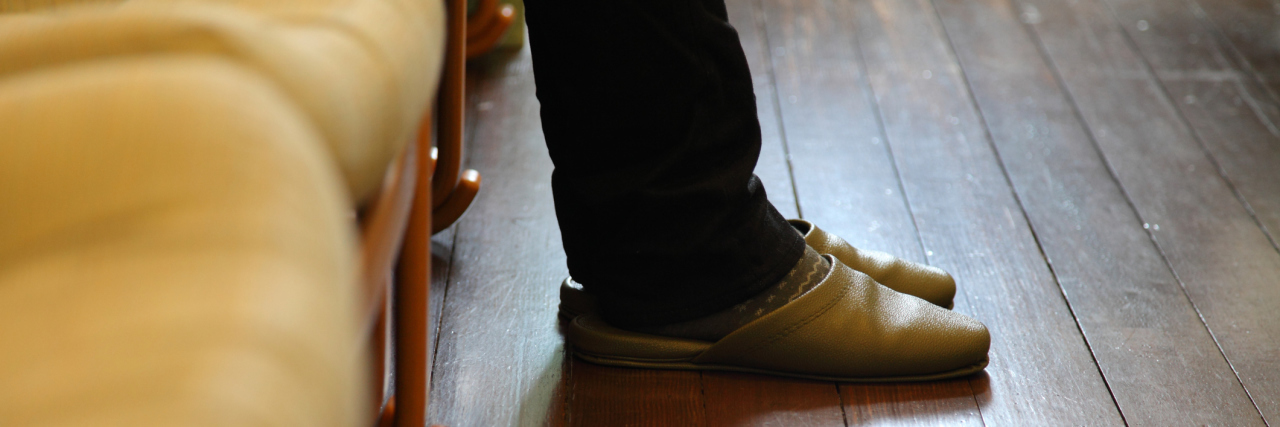Sarah Bareilles sings “Once Upon Another Time” with a haunting clarity that never fails to move me. The first verse remains a standing reminder of a past that I loved, and of a future that is my motivation to keep going.
“Once upon another time, somebody’s hands who felt like mine turned the key and took a drive, was free.”
Before my lupus diagnosis (and all of the other conditions that now accompany it), I loved to travel. I took solo road trips. I drove hundreds of miles from state to state with the windows down and music blaring, or I flew as far as I wanted to without worry of blood clots and arrhythmia, and I felt like I was free — like I could do anything. Seeing new places and meeting new people sparked my sense of independence and excitement as I proved to myself that I could do it all on my own. But like most aspects of my life, my trips are different now, and I’ve struggled with the fact that my feelings of independence have often transitioned to feelings of isolation.
I recently made one of my regular trips back to my former home to see my specialists, and lately, those are the only trips that I take anymore. I’m fortunate to have a team at a major metropolitan research hospital — a Goliath of a place whose approximately 50 city block campus immediately assures you of three things:
1. You are one of thousands of people much like you.
2. You are most assuredly seriously ill.
3. That despite all of that, you are in the best hands.
This is the varsity team, and your disease(s) garner your doctors’ undivided scholarly and personal attention. Care that is entirely worth the 880 mile trip.
When you walk through the towering buildings and down the hallways teeming with art, with skylights and live performances of classical music and jazz, you can almost forget that you are in a hospital. You’re suddenly in your own little world within that massive space, but truthfully, it’s a lonely feeling that is punctuated by the people you encounter there. The minute you stop looking up through the skylights and admiring the art, you make eye contact with person after person who looks much like you — whose hair has fallen out, who has scars, who wears a mask to keep out the hospital air that the skylights and art and live music so desperately try to hide.
You make eye contact and you exchange, automatically, instinctively, the knowing look that says, “I see you. I know. I’m sorry.” The look in which, moments before you both look away out of respect, the fatigue and pain and fear come through. Sometimes there is a nod of acknowledgment, but in a place so full of people and activity, there are almost never words.
Later as I sat in one of the smaller waiting rooms ahead of one of my appointments, the atmosphere was the same. No words were exchanged by fellow patients, even though we were all there for the same specialty. We were in a room full of peers, yet we were isolated. But that sense of isolation is also a defense mechanism in an emotionally complicated situation. As you sit in disciplinary waiting rooms labeled by physiological systems or disease variant, one scan of the room shows you the entire progression of your disease(s)…where you were, where you are now, and where you will be – sometimes sooner than you ever anticipated. There are sometimes no words for that experience.
It’s uncanny. You spend your regular days surrounded by healthy people, and you can feel isolated by the lack of shared experience and the pronounced feeling of difference. And you assume that coming to a place where everyone has a common battle is going to be somehow soothing or validating, but that is not always the case. You sit in a room where you suddenly look and feel like everyone else, and you are more alone there than anywhere. Your future is sitting right next to you, and you fear where she is – while she longs to be where you are. There is nothing more humbling, more enlightening, and sometimes more lonely than that.
But those feelings are also motivating. My former understanding of independence — achieving something or being successful by venturing out and pushing my limits alone — has evolved in a much more positive way. I’ve learned in the process of adapting to my new life is that independence does not necessarily mean alone. Independence for me is an emotional perspective; I want to share my life’s adventures as part of living an emotionally fulfilling life. It’s more about feeling complete than it is about accomplishing things alone.
I do know that if I’m willing to take the steps (even the painful ones) that allow my doctors to maintain some control over my symptoms, that the payoff is a future that still includes plenty of travel and adventures, and I’m learning that staring your future squarely in the face can help to alleviate some of the fear and uncertainty. It was my first step toward moving from feelings of isolation and incompleteness to independence. A new lifetime’s worth of adventures with a partner is actually far more exciting than any of my solo adventures were, and in true form, the final verse is hopeful, “Once upon another time, decided nothing good in dying, so I would just keep on driving, because I was free.”
Getty Image by yukihipo

